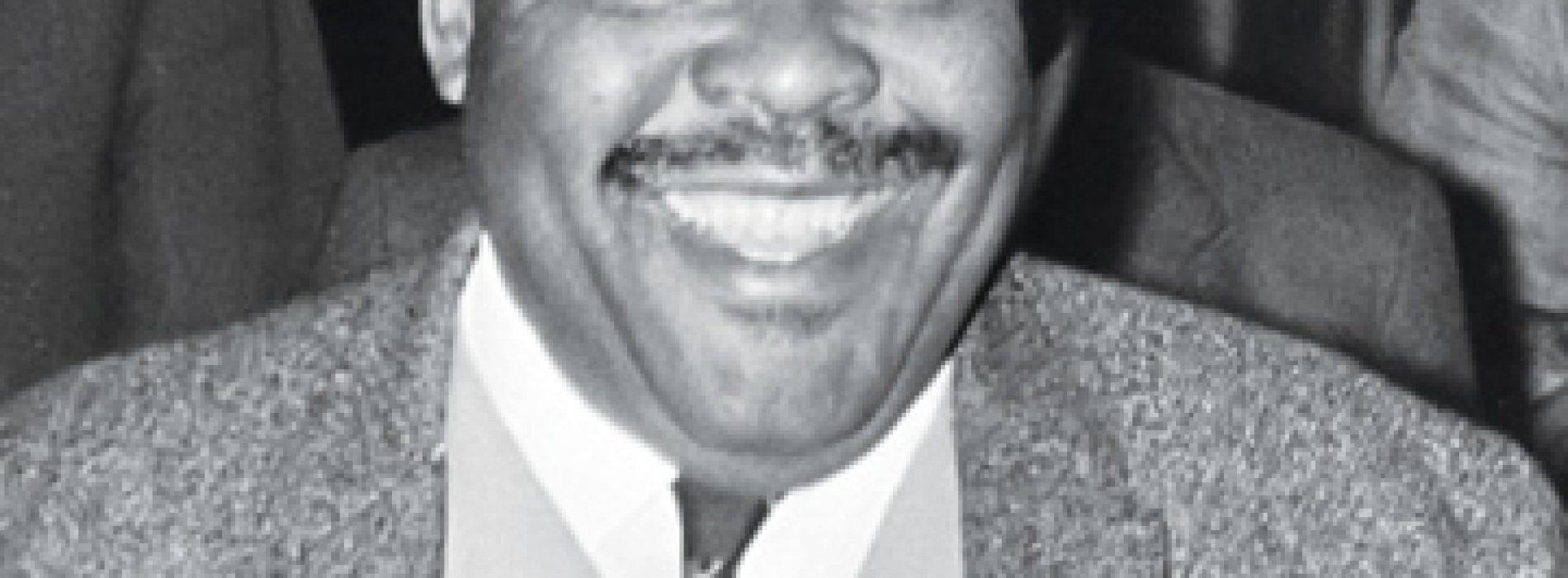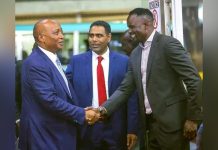Africa-Press – Lesotho. Lesotho celebrated her 50th independence anniversary on 4 October, 2016. It is fitting, therefore, that as the country looks back at its achievements and challenges, we also reflect on the role of one of the key players in the post-colonial Lesotho state namely, political parties.
As the country turns fifty years of age, this chapter takes stock of the role of political parties in the country’s politics over the years. Drawing on the history and contemporary evidence, it argues that Lesotho missed many opportunities to address its challenges such as combating disease and other social ills, due to lack of visionary and selfless political leadership.
Political elite and their parties in Lesotho have created a milieu of patron-client politics where those in power have unconstrained access to public resources for personal gain, nepotism and cronyism. Political differences and dissenting voices are sometimes punished by exclusion, or violence, including extra-judicial killings.
The deaths of Koenyama Chakela and Victor Moloi, in the 1980s and early 1990s, respectively, as well as those of Selala Sekhonyana and Sello Clement Machakela, in 2003 and 2012, respectively, to mention but a few, are cases in point.
Previous writings on Lesotho political parties have touched on the patron-client nature of Lesotho’s politics but never really interrogated the collaborative aspect of ruling and opposition parties’ in the plundering of state resources.
This chapter therefore addresses this gap, and contends that, all organisations which carry the sobriquet of “political party” in Lesotho are either directly or indirectly to blame for the political instability which is triggered by their leaders’ thirst for power and access to state resources.
In order to support the aforementioned contentions, the chapter begins with a brief conceptual background to political parties. This is followed by a discussion of political parties in Lesotho with the view to assess their character and role in the country’s democratisation process.
The chapter evinces Lesotho political parties’ frailties by looking, specifically, at institutional functioning, party-hopping, financing, and lastly, at the embryonic coalition politics.
It ends by explicating the requisite internal and external measures that must be taken by key actors namely, parliament, government and political parties themselves if political parties are to contribute effectively to the democratisation process in Lesotho in the next 50 years.
Political parties and peoples’ legitimate expectations
It is generally agreed that unfettered existence of political parties, and their ability to participate freely in a country’s political processes, is a key tenet for representative democracy.
Heywood (2002:248) provides four characteristics which distinguish political parties from other organisations. Firstly, political parties aim to exercise government power by winning political office (while small political parties may nevertheless use elections, more to gain a platform, and less to win power).
Secondly, political parties are organised bodies with a formal card-carrying membership. Thirdly, they typically adopt a broad issue focus, addressing each of the major areas of government policy.
Fourthly, and finally, Heywood notes that, to varying degrees, political parties are united by shared political preferences and a general ideological identity.
There is no doubt that, on the African continent and ahead of independence, the formation of political parties ahead of independence had the good intentions of freeing the African countries from colonial shackles and bringing about democratic and prosperous states.
As Mbeki (2011:4) aptly puts it, against the background of colonial disenfranchisement and dispossession, the Africans had high socio-economic aspirations which they verily believed would be met by their joining political parties.
However, there is ample evidence which shows that the expectations of many African citizens were not satisfied by the political parties which brought about independence on the continent.
Hence some Africans, such as Nzongola-Ntalaja (1997:9), talk of the “second independence”, which, he posits, is the demand for the fulfilment of the failed expectations of independence.
He reminds us that, people fought colonialism hoping that the post-colonial dispensation would bring about freedom and material prosperity. Yet, African leaders have, instead, created states that, besides failing to manage the economy and the natural environment, became the source of divisions and conflicts among them.
According to Mohamed Salih (2007:35), just like their independence peers, the post-third wave parties are faced with the same odds as their predecessors. For instance, they are trapped between. . .
aspirations generated through democratic resurgence and the African people’s dire need for better standards of living, and the wretched economic and social circumstances that political parties in most cases are ill equipped to resolve.
These parties have also shown similar traits of, and propensity to pursue, personalist politics which, as would be expected, is devoid of intra-party democracy.
In his study of political parties in the Southern African Development Community Region (SADC) region, Khabele Matlosa (2005:47) coins the notion of “triple tragedy” when summing up the multivariate challenges besetting political parties.
He posits that, parties suffer the triple tragedy of internal functioning centring on: a) autocratic bureaucracy; b) oligarchic personality cult; and c) pork-barrel politics.
The organisational weakness of many political parties is manifested by a palpable manipulation of internal party procedures employed by party leaders. Almond et al.
(2008:82) regard these parties as mere vehicles for ambitious politicians to get elected because they are “built around and dominated by their leaders”.
A look at many of these parties also shows party central committees (or Executive Committees as the case may be) which have bestowed on themselves veto powers on decisions made by party structures in order to serve their personal interests and those of the party leaders.
Consequently, tensions often arise out of the nomination of candidates and primary elections procedures where the central committees arbitrarily purge their opponents’ names in party candidates lists under the pretext of “screening the party lists”. These committees are often accused of parachuting their preferred candidates against the will of party structures.
The imposition of a mayoral candidate by the African National Congress (ANC) National Executive Committee (NEC), in South Africa, which led to the pre-August, 2016, local government elections violent protests in Tshwane, is one of the many recent cases in point.
Research has shown that, as a result of these negative factors, and many others, public confidence in African political parties to fulfil their mandate has plummeted in recent years (see Adejumobi, 2007; Chege, 2007; Salih, 2007; Matlosa et al.
, 2007).
In his 2002 seminal work entitled “Who killed democracy in Africa? Clues of the past, Concerns of the Future”, the late Ali Mazrui used a paradox of “western tastes without western skills, western consumption patterns without western production techniques and urbanisation without industrialisation” to highlight the materialistic obsession of the post-colonial African elites’, and the failure of their development policies.
Politicians never disappoint in their acrobatic performance (especially during elections) driven by their thirst for power. I have argued elsewhere (Shale, 2015) that, the political elite are better known for politicking which has less to do with the needs and aspirations of the citizenry but more to do with those of the political elite themselves.
It is for this reason that this chapter goes beyond the office-seeking tendencies of political parties and asks a critical question whether they can transcend electioneering (cheap politicking) and, instead, be instruments through which the hope of their nations can be realised and democratic governance fostered.
It is to this issue that I now turn, with specific focus on Lesotho. In fulfilling this objective, I take leaf from a study which I undertook in 2010 jointly with Anthony Motlamelle Kapa, for the Transformation Resource Centre (TRC) and the United Nations Development Programme (UNDP), in which the impact of proliferation of political parties on democracy in Lesotho is assessed.
I build on some of the arguments that were made then, while introducing new elements, especially with regards to conflict and political instability. A flash-back on the five decades of political parties’ splits in Lesotho
It can safely be proclaimed that political parties in Lesotho began as organised formations which advocated for the handover of power to the people of Lesotho through independence.
Their history has been authoritatively dealt with in a number of publications (such as Khaketla, 1971; Hamnett, 1975; Breytenbach, 1975; Machobane, 1990; Nyeko, 2002; Makoa, 2004 and 2011; Matlosa and Sello, 2005; Rosenberg and Weisfelder, 2013). In almost all accounts, it is agreed that, Lesotho’s political parties are products of deep seated personality differences between party leaders.






